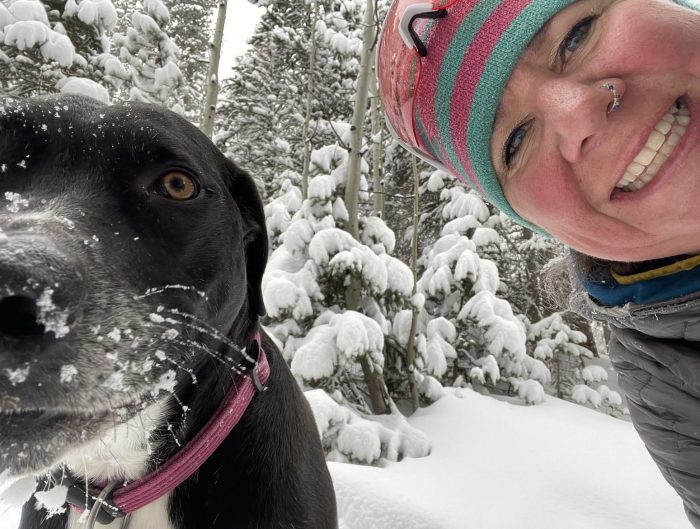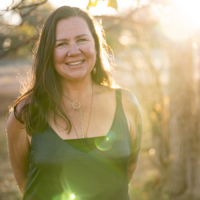As my hand reached mindlessly into the bag of organic popcorn, I hoped for relief.
I bit in and discovered none. I shared the next few pieces with my dog, Stella. She too seemed underwhelmed.
It was reminiscent of the afternoon prior, as I had sipped on a glass of forbidden wine. Forbidden, not because I am a Buddhist and a meditation guide, but because I am in the final weeks of prep for a big mountaineering expedition. I feel strong and fit, but a few less pounds to get up an ice ramp and 45-degree slope can make a big difference in one’s ability to not just summit a 20,000-foot mountain, but to enjoy oneself in the process!
Dissatisfied, I stepped away from the bag of popcorn and decided to strap on a headlamp and my running shoes to go for an early evening walk to clear my mind, hoping for some solace.
Most of us run around our whole lives slogging through the vicissitudes of life. We enjoy the highs and are surprised by and resist the lows. We crave the things that make us feel good, and we resist that which doesn’t. A handful of us get curious about both. A slim few of us understand the groundlessness of life that starts with our birth: because we are born, we will die. As such, groundlessness is inherent to our experience as humans. I think this is where the Buddhists get it right. A basic Buddhist teaching is to each day contemplate our death because it is inherent to the very basis of our existence. In this contemplation, we acknowledge that we don’t know when the diagnosis or accident will arrive, but arrive it must!
I recall, shortly after my mom’s unexpected death in a motorcycle accident, someone described grief, “like the tongue searching relentlessly for the tooth that had been there your whole life and is now gone.” As humans, we search relentlessly for the thing we desire most and never can fully realize: security.
Walking down the road, it occurred to me that I’d been caught with my pants down by the person who matters most in these matters—me! I had lost confidence in the wisdom of my own experience and was pining away for a distraction. Through the act of eating popcorn and drinking wine (two perfectly lovely pastimes in moderation), I was seeing clearly my desire to escape—my pushing away of the present moment experience. I wanted the greasy crunch and the warm numbing out. I wanted to settle the unsettled feelings within me.
The problem didn’t lie in the popcorn or the wine; the problem was that I was trying to fill an unfillable desire. I was seeking refuge in an external object to fill an internal dissatisfaction. I wanted the “groundlessness hole” to be filled.
In her aptly titled book, The Wisdom of No Escape, Pema Chödrön explains the antidote to those unsettled feelings like this:
“As adults, we can begin to cultivate a sense of loving-kindness for ourselves — by ourselves, for ourselves. The whole process of meditation is one of creating that good ground, that cradle of loving-kindness where we actually are nurtured. What’s being nurtured is our confidence in our own wisdom, our own health, and our own courage, our own goodheartedness. We develop some sense that the way we are — the kind of personality that we have and the way we express life — is good, and that by being who we are completely and by totally accepting that and having respect for ourselves, we are standing on the ground of warriorship.”
The sun began to set on my walk and I felt the brisk air on my skin. I began to get present to the moment at hand, and I looked up at the changing colors in the sky. I noticed the aspen trees devoid of leaves, standing stark and strong and naked against the sky. The snow and ice crunched sharply beneath my feet. Everything around me in that moment embodied warriorship. It was as if the whole world was beckoning me to stand up stronger and to face my life just as it was in that moment and to take refuge in it.
How do we find refuge within us? How can we work with these feelings practically?
Here are the four steps that came through to me on my walk:
1. We can be present with feelings without trying to change them. Extending loving-kindness to myself with a gentle acceptance that I was feeling unsettled and that it was okay to just sit in the sea of discomfort.
2. We can use these moments to cultivate empathy. Taking a moment to then acknowledge and extend loving-kindness to all beings experiencing this same groundless feeling. It is the root of depression, addiction, and grief. So many of us experience these feelings every day! Not to mention the holiday season that can be a dichotomous adventure of both joy and sorrow.
3. We can bring our meditation practice off the cushion and into life. Turning the gaze inward, thanks to my daily meditation practice, and rolling through the rolodex of gratitude for all that I have in my life—including the touchstone teachings of Pema and others around taking refuge in our inherent wisdom.
4. We can feel gratitude for the tools we have at hand. Acknowledging that without a daily meditation practice, I wouldn’t have had the space to see what was actually happening. I would have been caught in the desire and resistance web without the tool to gently extract myself.
When we feel the sensations of groundlessness arise in our bodies, it can be a source of both wisdom and an invitation to take refuge. It can be an invitation to connect with the wisdom and compassion warrior that lives within each of us. It can be a rallying call to break down the walls in our heart and to extend loving-kindness and empathy to others who are in the same boat.
Rather than seeing groundlessness as a feeling we try to suppress or repress, we can transform the groundlessness into a feeling of great equanimity for all other human beings.
We can eat the popcorn or not.
~
Please consider Boosting our authors’ articles in their first week to help them win Elephant’s Ecosystem so they can get paid and write more.
 Share on bsky
Share on bsky


Read 20 comments and reply